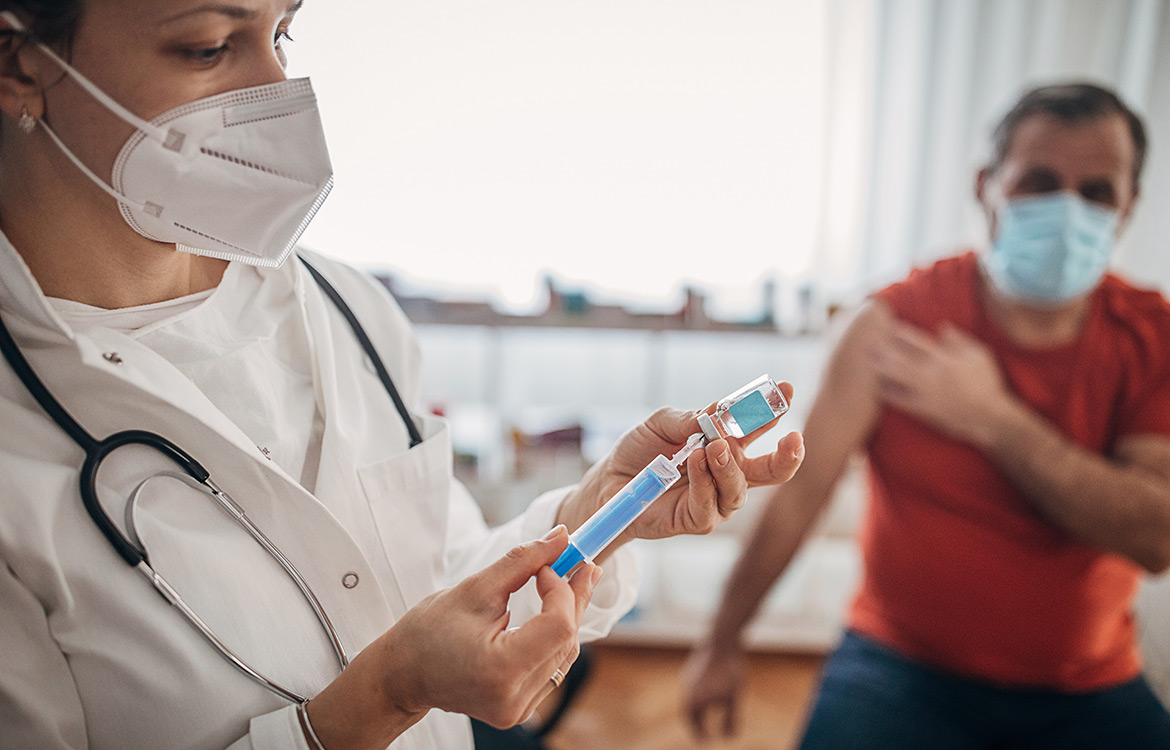COVID 19 Booster: What You Need to Know

The COVID-19 vaccine has been highly effective against transmitting the COVID variants and protecting from serious illness and hospitalizations. Unfortunately, the vaccines’ efficacy — especially against infection — seems to wane over time. That’s why the Centers for Disease Control (CDC) and the Food and Drug Administration (FDA) began recommending booster shots this fall for high-risk Americans.
Now that guidance has been extended to everyone 16 and older.
Will I Need a Booster Shot for Covid-19?
For most people, the two-dose mRNA vaccines remain effective against the worst outcomes of COVID-19 many months after they’re originally given. For example, studies show the Pfizer mRNA vaccine was 90 percent effective even after six months against hospitalization and severe illness. But against infections of some variants, especially Delta, it fell from 93 percent effective to 53 percent effective.
Other vaccines showed similar declines in protecting against infection. This decline in effectiveness may be related to lower antibody levels in the months after two-dose inoculation is complete. Although it’s not clear that boosters prevent infections, they do boost antibody levels, according to multiple studies. And there are studies which show boosters improve protection against severe illness.
They also may protect against Omicron, a fast-spreading variant of COVID. Laboratory studies have shown that the vaccine boosters help increase antibody protection.
That’s why the government is recommending that people over 16 who are six months past the date when they became fully vaccinated get the booster shot.
If you’re concerned about getting a booster, discuss it with your primary care physician.
Where Can I Get a Booster?
The boosters are available at local public health departments and pharmacies. After scheduling your appointment, make sure you bring your CDC COVID-19 Vaccination Record card with you.
What About COVID Booster Side Effects?
You may experience some side effects after the booster, similar to those you had after your original dose(s). Symptoms are a sign that your immune system is being prepared to protect you against the virus. Typical side effects include redness, pain and swelling at injection site as well as fatigue, headache, muscle pain, chills, fever and nausea. However, if you develop unexpected side effects, use v-safe to report it to the CDC.
Which Booster Should I Get?
You may be wondering which booster to get. Boosters are compatible with vaccines from Pfizer, Moderna and Johnson & Johnson, the three vaccines authorized in the U.S., according to the CDC. The CDC’s recommendations allow for mixing or matching booster brands.
How Are Boosters Different From Vaccine Doses?
The boosters from Pfizer and J&J are exactly the same as the original dose of the vaccine. Moderna’s booster is a lower dose — its original dose was higher than Pfizer’s, for example. All three are considered effective.
For more information, please visit the CDC’s booster page.



